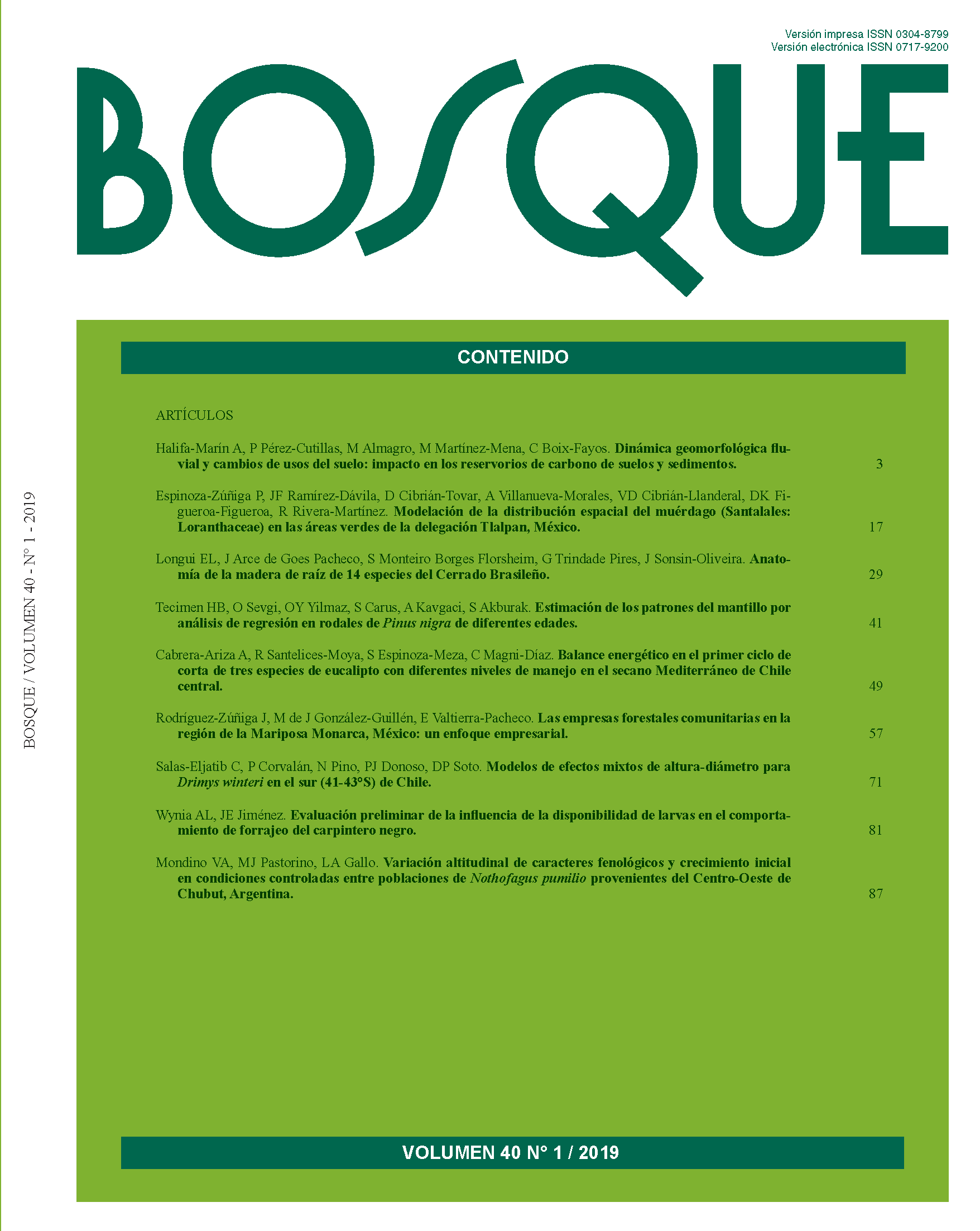Root wood anatomy of 14 Brazilian Cerrado species
Main Article Content
Abstract
Studies on root wood anatomy are scarce, mainly due to the lack of commercial interest and the difficulty to collect. In Brazilian Cerrado, local craftsmen use root wood for marquetry, the manufacture of such small items as lampshades or ornaments, and table bases. However, taxonomy based on root wood can serve as a guide toward the conservation and management of tree stocks in urban environment. Therefore, we herein describe the root wood anatomy of 14 tree species that occur in the Brazilian Cerrado. To accomplish this, we studied samples from main sinker root, at a depth of about 20 cm, from 37 trees aged 5 to 10 years. Anatomical procedures followed the standard techniques for preparation and analyses of wood samples. We used stem or branch samples from other studies to carry out anatomical description and comparison. However, we encountered some problems, such as: difficulty to distinguish growth rings, sample processing and, in some cases, sample description, since quantity, distribution and type of axial parenchyma differed substantially from that of the main stem. Nonetheless, we did find a variation in the presence/absence of septate fibers among the samples, and noted differences in ray composition.

